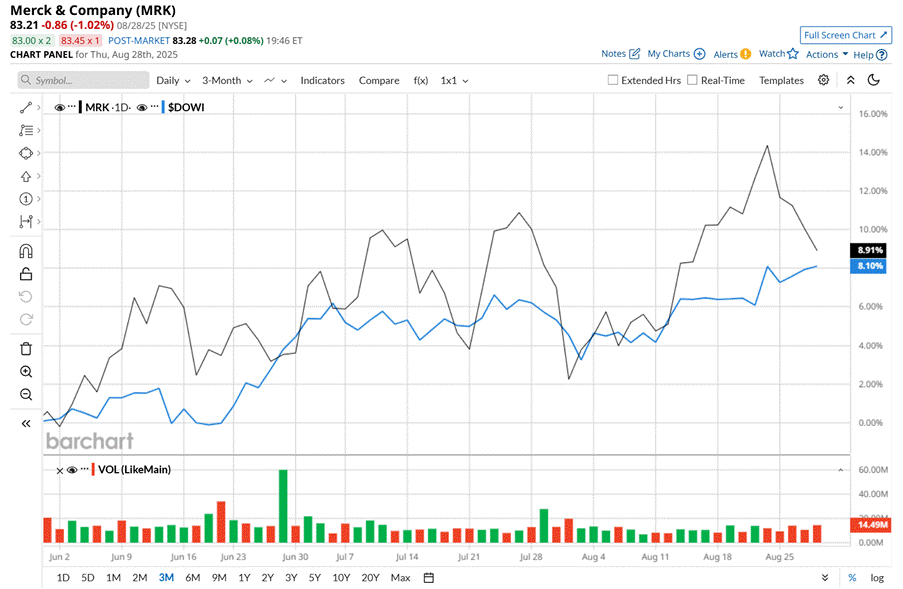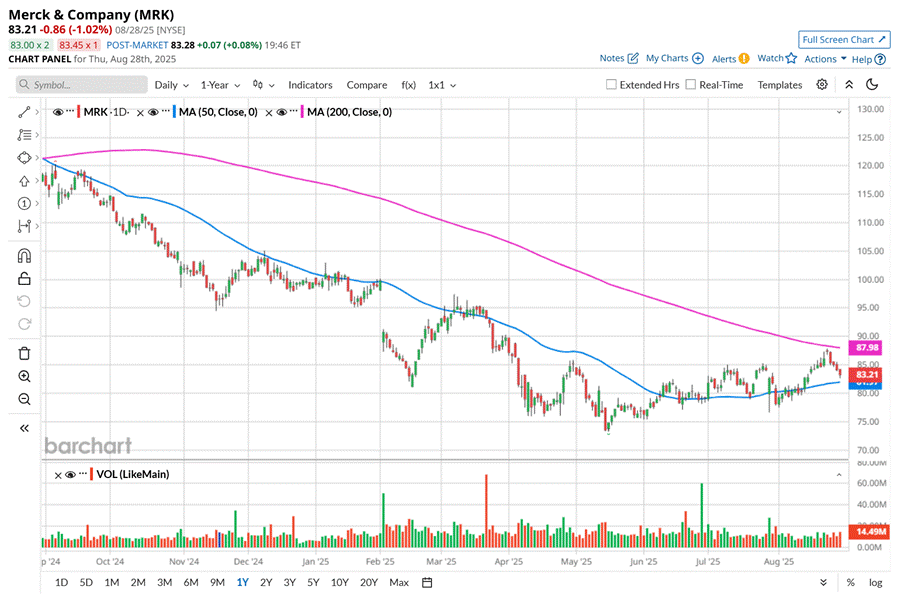/Merck%20%26%20Co%20Inc%20HQ%20-by%20Sundry%20Photography%20via%20iStock.jpg)
Valued at a market cap of $207.8 billion, Merck & Co., Inc. (MRK) is a leading healthcare company based in Rahway, New Jersey. It develops and markets human health pharmaceuticals across key therapeutic areas like oncology, vaccines, hospital acute care, cardiovascular, virology, neuroscience, and diabetes. Additionally, it offers veterinary medicines, vaccines, and health management solutions and services for both livestock and companion animals.
Companies worth $200 billion or more are typically classified as “mega-cap stocks,” and MRK fits the label perfectly, with its market cap exceeding this threshold, underscoring its size, influence, and dominance within the drug manufacturers - general industry. The company’s strength lies in its strong research and development (R&D) capabilities, which fuel its leadership in innovative medicines and vaccines. The combination of cutting-edge innovation, a robust product pipeline, and global market presence positions Merck as a key player in advancing healthcare worldwide.
This healthcare giant has slipped 30.8% from its 52-week high of $120.30, reached on Sep. 6, 2024. Nonetheless, shares of MRK have gained 9.2% over the past three months, outpacing the Dow Jones Industrial Average’s ($DOWI) 8.4% rise during the same time frame.

However, in the longer term, MRK has declined 29.1% over the past 52 weeks, considerably lagging behind DOWI’s 11.1% return over the same time period. Moreover, on a YTD basis, shares of MRK are down 16.4%, compared to DOWI’s 7.3% return.
To confirm its recent bullish trend, MRK has been trading above its 50-day moving average since early June, with slight fluctuations. However, it has remained below its 200-day moving average over the past year.

On Jul. 29, shares of Merck plunged 1.7% after its Q2 earnings release, despite delivering better-than-expected revenue of $15.8 billion and adjusted EPS of $2.13. However, both metrics experienced year-over-year declines, which might have lowered investor confidence. Its top line decreased 1.9% mainly due to weaker pharmaceutical revenue from vaccines and immunology, while its adjusted EPS dropped 6.6% compared to the prior year.
MRK has also lagged behind its rival, Pfizer Inc. (PFE), which declined 14.4% over the past 52 weeks and 7.3% on a YTD basis.
Looking at Merck’s recent outperformance, analysts remain moderately optimistic about its prospects. The stock has a consensus rating of "Moderate Buy” from the 25 analysts covering it, and the mean price target of $101.82 suggests a 22.4% potential upside from its current price levels.







